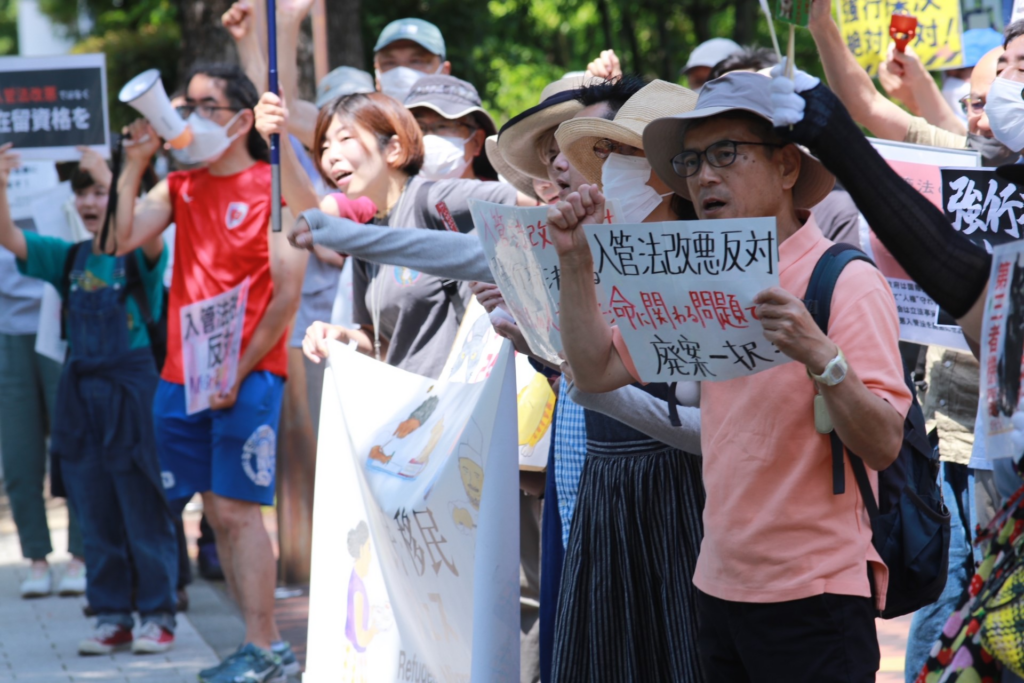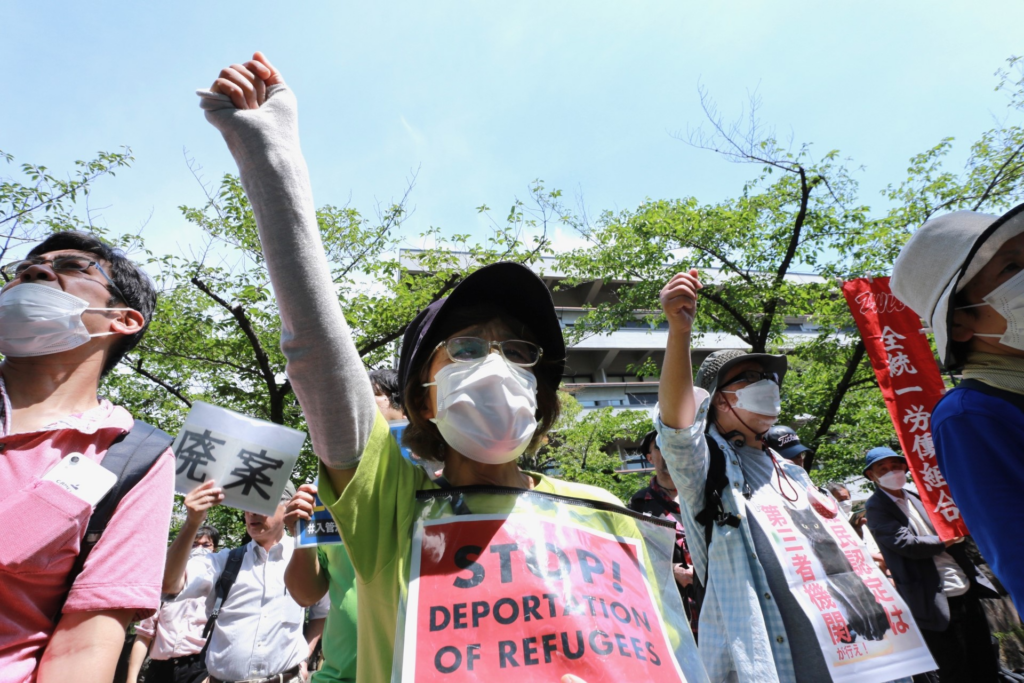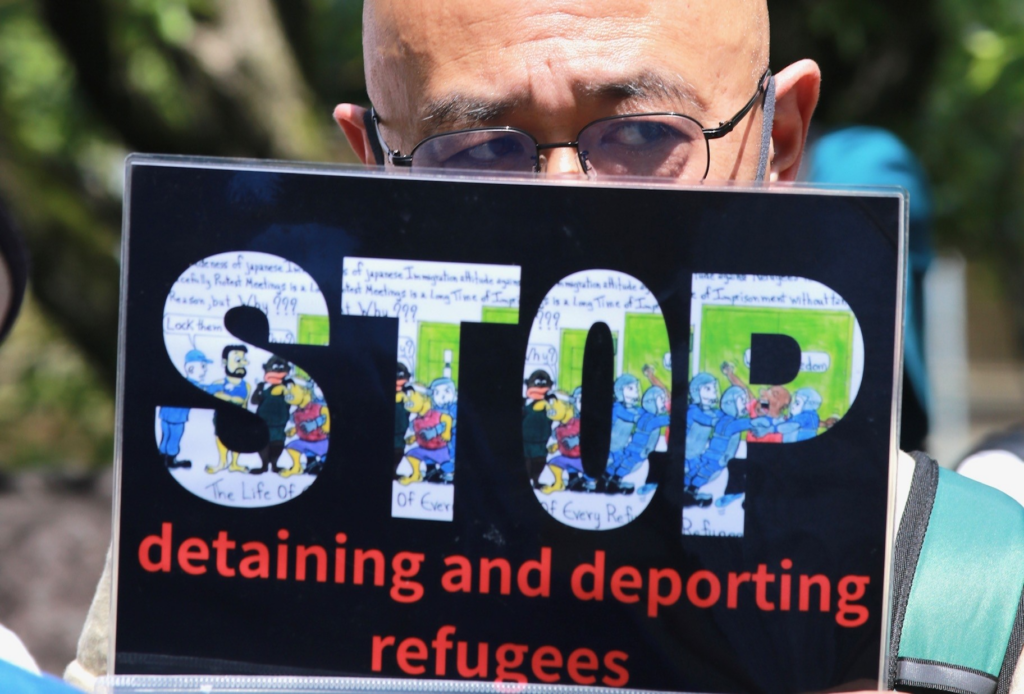





TOKYO: Japan’s Parliamentary Judiciary Committee passed controversial revisions to the Immigration Control and Refugee Law on Thursday despite unruly protests both outside and inside parliament.
Those opposed to the bill were vocal in their protests. On Wednesday and Thursday, thousands demonstrated in and around parliament. At one stage, police had to intervene when a van from the Renovation Party, which supports the revisions, stopped in front of protesters. Tensions cooled after the police forced the van to move on.
Inside parliament, a motion was proposed to punish Reiwa Shinsengumi leader YAMAMOTO Taro for injuring lawmakers by trying to jump on the chairman of the House of Councilors and Judicial Committee as the vote took place.
According to multiple parties, two members of the House of Councilors, WAKABAYASHI Yohei and NAGAI Manabu of the Liberal Democratic Party, suffered light injuries. After the committee meeting, Yamamoto apologized but both ruling and opposition parties will submit a motion to punish Yamamoto.
The bill was passed by the ruling Liberal Democratic Party with support from its coalition partner Komeito, as well as the Japan Innovation Party and the Democratic Party for the People. Parliament will vote on the bill on Friday.
The Constitutional Democratic Party of Japan unsuccessfully sought to block the bill by submitting a motion to dismiss Judicial Affairs Committee Chairman SUGI Hisatake and a censure motion against Justice Minister SAITO Ken.
The bill creates an exception to a provision that suspends all deportations during refugee application screening procedures. This will mean that authorities will be able to deport those seeking refuge in Japan for a third time or more.
The current law sets no limit to the number of times foreign nationals can apply for refugee status. Supporters of the bill say some applicants repeatedly file for refugee status to avoid deportation, causing Japan to detain foreigners at immigration facilities.
Despite opposition parties claiming the bill penalizes refugees and asylum seekers, it also has provisions to make life easier for some seeking refuge in Japan.
The revision will introduce a supervisory system to allow refugee status seekers to live outside detention facilities on condition that they are supervised by relatives or supporters.
It also calls for a system to grant quasi-refugee status to people displaced by conflict who are not recognized as refugees under the U.N. Refugee Convention – for example, to evacuees from Ukraine or Syria – so that they can live in Japan.